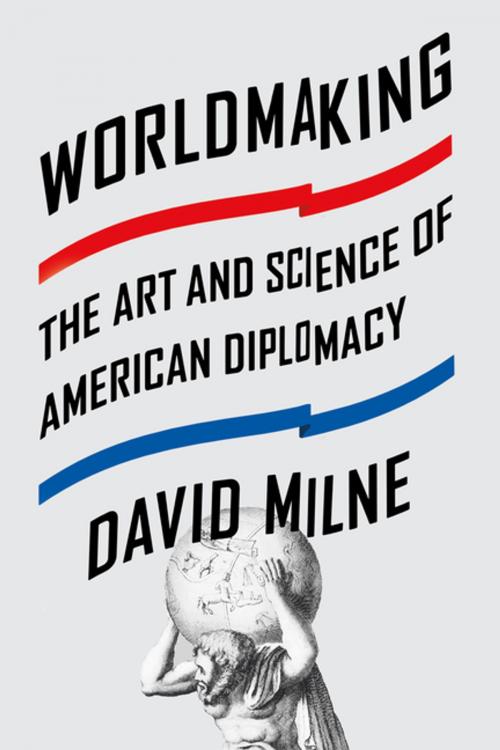Worldmaking
The Art and Science of American Diplomacy
Nonfiction, Social & Cultural Studies, Political Science, International, International Relations, History, Americas, United States, 20th Century| Author: | David Milne | ISBN: | 9780374714239 |
| Publisher: | Farrar, Straus and Giroux | Publication: | September 22, 2015 |
| Imprint: | Farrar, Straus and Giroux | Language: | English |
| Author: | David Milne |
| ISBN: | 9780374714239 |
| Publisher: | Farrar, Straus and Giroux |
| Publication: | September 22, 2015 |
| Imprint: | Farrar, Straus and Giroux |
| Language: | English |
A new intellectual history of U.S. foreign policy from the late nineteenth century to the present
Worldmaking is a compelling new take on the history of American diplomacy. Rather than retelling the story of realism versus idealism, David Milne suggests that U.S. foreign policy has also been crucially divided between those who view statecraft as an art and those who believe it can aspire to the certainty of science.
Worldmaking follows a cast of characters who built on one another’s ideas to create the policies we have today. Woodrow Wilson’s Universalism and moralism led Sigmund Freud to diagnose him with a messiah complex. Walter Lippmann was a syndicated columnist who commanded the attention of leaders as diverse as Theodore Roosevelt, Lyndon Johnson, and Charles de Gaulle. Paul Wolfowitz was the intellectual architect of the 2003 invasion of Iraq—and an admirer of Wilson’s attempt to “make the world safe for democracy.” Each was engaged in a process of worldmaking, formulating strategies that sought to deploy the nation’s vast military and economic power—or sought to retrench and focus on domestic issues—to shape a world in which the United States would be best positioned to thrive.
Tracing American statecraft from the age of steam engines to the age of drones, Milne reveals patterns of worldmaking that have remained impervious to the passage of time. The result is a panoramic history of U.S. foreign policy driven by ideas and by the lives and times of their authors.
A new intellectual history of U.S. foreign policy from the late nineteenth century to the present
Worldmaking is a compelling new take on the history of American diplomacy. Rather than retelling the story of realism versus idealism, David Milne suggests that U.S. foreign policy has also been crucially divided between those who view statecraft as an art and those who believe it can aspire to the certainty of science.
Worldmaking follows a cast of characters who built on one another’s ideas to create the policies we have today. Woodrow Wilson’s Universalism and moralism led Sigmund Freud to diagnose him with a messiah complex. Walter Lippmann was a syndicated columnist who commanded the attention of leaders as diverse as Theodore Roosevelt, Lyndon Johnson, and Charles de Gaulle. Paul Wolfowitz was the intellectual architect of the 2003 invasion of Iraq—and an admirer of Wilson’s attempt to “make the world safe for democracy.” Each was engaged in a process of worldmaking, formulating strategies that sought to deploy the nation’s vast military and economic power—or sought to retrench and focus on domestic issues—to shape a world in which the United States would be best positioned to thrive.
Tracing American statecraft from the age of steam engines to the age of drones, Milne reveals patterns of worldmaking that have remained impervious to the passage of time. The result is a panoramic history of U.S. foreign policy driven by ideas and by the lives and times of their authors.















